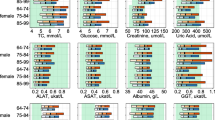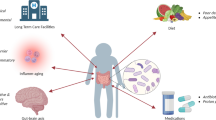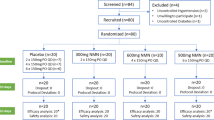Abstract
Experimentally imposed calorie restriction (CR) is shown to result in the most reproducible endpoint of lifespan extension in all animals models tested. In this presentation, the question of CR’s effect on human longevity is reviewed by discussing data pertinent to the putative efficacy of CR on humans. Arguments are presented in support of this possibility based on CR’s unique abilities to retard biological functional declines and to deter pathological processes, both of which are major targets of deleterious oxidative stress. To delineate the cellular and molecular mechanisms of CR’s efficacy on human longevity, this review elaborates on the modulation of CR on the inflammatory process, a common risk factor for many chronic diseases. Discussions also include evidence from human data on the effect of CR in the loss of body weight, known to suppress inflammatory cytokines, subsequently leading to the reduction of chronic diseases known to compromise the functional longevity of humans.
Similar content being viewed by others
References
Aruoma OI, Halliwell B (1998) Molecular biology of free radicals in human diseases. OICA International, London, UK
Caruso C, Candore G, Colonna-Romano G, Lio D, Francceshi C (2004a) Inflammation and life-span. Science 305: 1736–1739
Caruso C, Lio D, Cavallone L, Franceschi C (2004b) Aging, longevity, inflammation, and cancer. Ann NY Acad Sci 1028:1–13
Chung HY, Kim HJ, Kim WJ, Yu BP (2001) The inflammatory hypothesis of aging: molecular modulation by calorie restriction. Ann NY Acad Sci 928:327–335
Chung HY, Jung KJ, Yu BP (2005) Molecular inflammation as an underlying mechanism of aging: the anti-inflammatory action of calorie restriction. In: Surh YJ, Packer L (eds) Oxidative stress, inflammation, and health. CRC Press, Boca Raton, pp 389–421
Dandona P, Aljada A, Brandyopadhyay A (2004) Inflammation: the link between insulin resistance, obesity and diabetes. Trends Immunol 25:4–7
Dirks AJ, Leeuwenburg C (2006) Calorie restriction in humans: potential pitfalls and health concerns. Mech Ageing Dev 127:1–7
Ferroni P, Basili S, Falco A,and Davi G (2004) Inflammation, insulin, and obesity. Curre Atheroscler Rep 6:424–431
Fontana L, Meyer TE, Klein S, Holloszy JO (2004) Long-term calorie restriction is highly effective in reducing the risk for atherosclerosis in humans. Proc Natl Acad Sci USA 101:6659–6663
Hursting SD, Lavigne JA, Berrigan D, Perkins SN, Barrett JC (2003) Calorie restriction, aging, and cancer prevention: mechanisms of action and applicability to humans. Annu Rev Med 54:131–152
Licastro F, Candore G, Lio D, Colonna-Romano EP, Franceshi C, Caruso C (2005) Innate immunity and inflammation in ageing: a key for understanding age-related diseases. Immun Ageing 2:8–32
Phelan JP, Rose MR (2005) Why dietary restriction substantially increases longevity in animal models but won’t in humans. Ageing Res Rev 4:339–350
Rae M (2004) It’s never too late: Calorie restriction is effective in older mammals. Rejuv Res 7:3–8
Savage DB, Petersen KF, Schulman GI (2005) Mechanisms of insulin resistance in humans and possible links with inflammation. Hypertension 45:828–833
Tracy RP (2003) Emerging relationships of inflammation, cardiovascular disease, and chronic diseases of aging. Int. J Relat Metab Disord 27(Suppl 3):S29–34
Velthuis-te Wierik EJ, van den Berg H, Schaafsma G, Hendriks HF (1994) Energy restriction, a useful intervention to retard human ageing? Results of a feasibility study. Eur J Clin Nutr 48:138–148
Walford RL, Mock D, MadCallum T, Laseter JL (1999) Physiologic changes in humans subjects to severe, selective calorie restriction for two years in biospere 2: health, aging, and toxicological perspectives. Toxicol Sci 52: 61–65
Walford RL, Mock D, Verdery R, MacCallum T (2002) Calorie restriction in biosphere 2: alterations in physiologic, hematologic, hormonal and biochemical parameters in humans restricted for a 2-year period. J Gerontol 57:B211–224
Yu BP, Chung HY (2001) Stress resistance by calorie restriction for longevity. Ann NY Acad Sci 928:39–47
Yu BP (2005a) Calorie restriction as potent anti-aging intervention: modulation of oxidative stress. In: Rattan SIS (ed) Aging interventions and therapies. World Scientific, New Jersey, pp 193–217
Yu BP (2005b) Membrane alteration as a basis of aging and the protective effects of calorie restriction. Mech Ageing Dev 126:1003–1010
Author information
Authors and Affiliations
Corresponding author
Rights and permissions
About this article
Cite this article
Yu, B.P. Why calorie restriction would work for human longevity. Biogerontology 7, 179–182 (2006). https://doi.org/10.1007/s10522-006-9009-y
Received:
Accepted:
Published:
Issue Date:
DOI: https://doi.org/10.1007/s10522-006-9009-y




